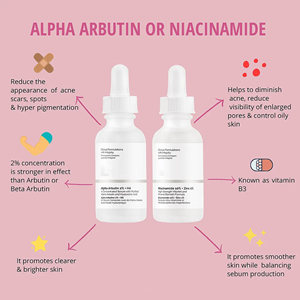What Are The Symptoms Of Low Vitamin B1?
Introduction
Vitamin B1 Powder, also known as thiamine, is an essential nutrient that plays a crucial role in maintaining overall health and well-being. A deficiency in vitamin B1 can lead to a range of symptoms that can significantly impact one’s quality of life. In this article, we will explore the symptoms of low vitamin B1 from various perspectives, providing a comprehensive understanding of the condition and the importance of seeking proper treatment.
Understanding Vitamin B1 Deficiency
Vitamin B1 is essential for the proper functioning of the nervous system, muscles, and heart. It is involved in the conversion of carbohydrates into energy and plays a key role in maintaining the health of the brain and nervous system. When the body lacks an adequate amount of vitamin B1, various physiological processes are disrupted, leading to a range of symptoms.
Physical Symptoms
One of the primary physical symptoms of low vitamin B1 bulk powder is fatigue and weakness. Individuals may experience a general lack of energy, making it difficult to carry out daily activities. Additionally, muscle weakness and pain, particularly in the legs, may be present. Some individuals may also develop peripheral neuropathy, characterized by tingling or numbness in the extremities.
Psychological Symptoms
Low vitamin B1 levels can also impact mental health. Cognitive difficulties, including poor concentration, memory problems, and confusion, are common symptoms of deficiency. In severe cases, individuals may experience Wernicke-Korsakoff syndrome, a condition characterized by severe memory impairment, confusion, and changes in vision.
Gastrointestinal Symptoms
Gastrointestinal disturbances are another hallmark of low vitamin B1 levels. Individuals may experience loss of appetite, nausea, and digestive issues such as constipation or diarrhea. Unexplained weight loss may also occur as a result of decreased food intake and impaired nutrient absorption.
Cardiovascular Symptoms
The cardiovascular system can also be affected by vitamin B1 deficiency. Individuals may experience an increased heart rate, shortness of breath, and swelling in the lower extremities due to fluid retention. In severe cases, heart failure may develop, leading to significant health complications.
Neurological Symptoms
Neurological symptoms of low vitamin B1 can manifest as changes in mood, irritability, and depression. Some individuals may also experience sleep disturbances, such as insomnia or excessive daytime sleepiness. These symptoms can significantly impact one’s overall well-being and quality of life.
Seeking Proper Treatment
Recognizing the symptoms of low vitamin B1 is crucial for seeking proper treatment. If you suspect that you may be experiencing symptoms of deficiency, it is important to consult with a healthcare professional for a thorough evaluation. Treatment typically involves vitamin B1 supplementation, either through dietary changes or the use of supplements, to restore optimal levels in the body.
Xi'an tgybio Biotech Co.,Ltd is vitamin B1 Factory, we can provide vitamin b1 powder, vitamin b1 capsules, vitamin b1 tablets. Our factory can supply OEM/ODM One-stop service, including customized packaging and labels. If you want to learn more, you can send e-mail to rebecca@tgybio.com or WhatsAPP+8618802962783.
Conclusion
In conclusion, low vitamin B1 levels can lead to a range of symptoms that affect various aspects of physical and mental health. Recognizing these symptoms and seeking proper treatment is essential for addressing the underlying deficiency and restoring overall well-being. By understanding the importance of vitamin B1 and its impact on health, individuals can take proactive steps to maintain optimal nutrient levels and support their overall health.
References:
National Institutes of Health. Thiamin Fact Sheet for Health Professionals. https://ods.od.nih.gov/factsheets/Thiamin-HealthProfessional/
Mayo Clinic. Wernicke-Korsakoff syndrome. https://www.mayoclinic.org/diseases-conditions/wernicke-korsakoff-syndrome/symptoms-causes/syc-20370539





















